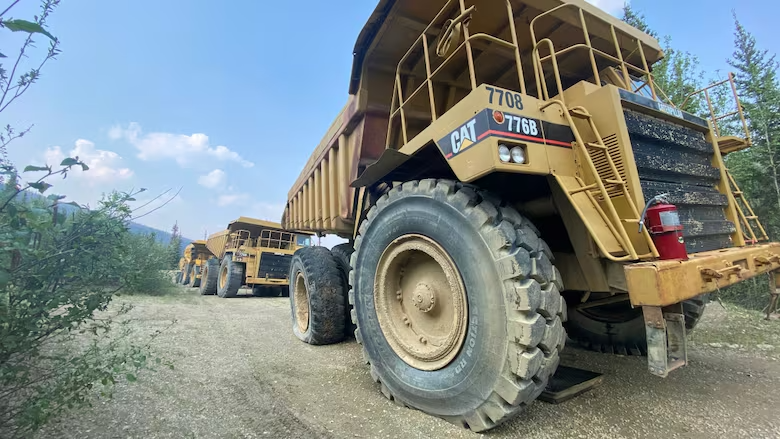Draft document outlines sweeping changes to Yukon’s mining laws

Draft, obtained by CBC News, would give First Nations more say over mining projects
A draft framework for Yukon’s proposed new mining legislation outlines major changes to the existing system, including more say for First Nations on mining projects in the territory.
The 30-page draft framework has been in the works since 2021 and was obtained by CBC News through an access to information request. The territorial government had earlier declined to release the document while consultations were underway.
The new legislation is intended replace the Quartz Mining Act and Placer Mining Act. Some of the territory’s laws and regulations around mining have not changed in a century. The government says it has been working closely with First Nations to determine how to best update the legislation.
Math’ieya Alatini, grand chief of the Council of Yukon First Nations, said negotiators from First Nations and the Yukon government were meeting this week to hammer out final details of the framework, ahead of a territorial election call that must happen some time in the next month.
“It is extremely apparent that we need to update our legislation and the industry knows it, the First Nation governments know it, territorial government knows it,” she said.
“So it would be problematic if any future government came in and did not actually adhere to the wishes of five years’ worth of work from all representatives of these voices. I think it would be foolish to have that work thrown away.”
Controversial draft framework
A spokesperson for the Yukon Chamber of Mines, which is not involved in the negotiations this week, did not respond to a request for comment.
The draft document is not the new legislation itself, but outlines the terms of the eventual bill.
It outlines how staked claims would no longer automatically come with mineral rights. Instead, prospectors would apply for exclusive rights on a piece of public land and only after doing some work on the area could they then apply for mineral rights.
In order to go into production, miners would need authorization from the government, and First Nations would have the ability to ask the territory to cancel those authorizations.
The framework also includes a provision to enable enforcement officers to enter properties and seize evidence, in some cases without a warrant. There are also new penalties for violations in the framework, ranging from cash fines to the outright cancellation of mineral rights.
The draft framework has already been controversial. Last month, both the First Nation of Na-Cho Nyäk Dun and the Yukon Chamber of Mines blasted the government over the document.
The First Nation said it rejected the framework, saying it ignores the First Nation’s concerns and doesn’t go far enough to fix how mining is done in the territory.
The chamber of mines, meanwhile, argued that the draft legislation went too far, with sweeping changes that “would threaten the Yukon’s ability to remain viable and competitive in a global investment market.”
With files from Chris Windeyer
Related stories from around the North:
Canada: N.W.T. gov’t to review impact benefit agreements between mines and Indigenous groups, CBC News
Greenland: Greenland ‘Freedom City?’ Rich donors push Trump for a tech hub up north, Reuters
Russia: Russia sees stable oil exports and booming gas business by 2050, Reuters
Sweden: Swedish developer GRANGEX buys iron ore mine on Norway’s border to Russia, The Independent Barents Observer
United States: Environmentalists criticize Trump administration push for new oil and gas drilling in Alaska, Alaska Public Media



